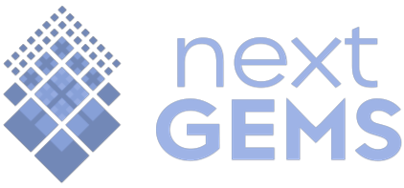Projekt badawczy
Next Generation Earth Modelling Systems (NextGEMS)
| prof. dr hab. Hanna Pawłowska | Koordynator projektu na UW |
| dr Gustavo Abade | Wykonawca |
| dr Piotr Dziekan | Wykonawca |
| prof. dr hab. Szymon P. Malinowski | Wykonawca |
| dr Jakub Nowak | Wykonawca |
| dr hab. inż. Marta Wacławczyk | Wykonawca |
Coordinated by: Max-Planck-Gesellschaft zur Förderung der Wissenschaften e.V, Germany
NextGEMS will develop and apply a new generation of global coupled Storm-Resolving Earth System Models (SR-ESMs) to the study of anthropogenic climate change. SR-ESMs are distinguished by their fine, 3 km, grid in the atmosphere and ocean. This allows a more physical representation of atmospheric and oceanic circulation systems, including their coupling to Earth-system processes such as the carbon, nutrients, water and atmospheric particulate (aerosol) cycles. NextGEMS will develop two prototypes SR-ESMs into production systems and produce multi-decadal (30 y) projections of future climate change. Improved resolution is expected to reduce biases and enhance the realism of these simulations. Ensembles of simulations will address scientific puzzles such as the impact of convective organization on climate sensitivity, the magnitude of aerosol forcing, and the changes in extremes associated with tropical air-sea interaction (including the African Monsoon and Atlantic Hurricanes) and land-surface interaction in the mid-latitudes (dry-spells and links between hydrology and carbon). By developing models that are structurally different than existing ones, NextGEMS will reshape perceptions of uncertainty and provide a basis for reassessing the risk global warming poses for society and ecology. By focusing on just two models, NextGEMS builds a European community of scientists and users around a technologically more ambitious modelling enterprise. This concentration is needed if Europe is to maintain its position at the forefront of Earth-system modelling. By representing the scales of motion and driving forces of high impact weather globally, NextGEMS links more directly to applications, thereby shortening the value chain. Knowledge coproduction projects focusing on how circulation influences both solar energy production and marine nutrients will demonstrate how applications and downstream users can thus be directly integrated into the model development enterprise.
Niniejszy projekt otrzymał finansowanie z Programu Unii Europejskiej Horyzont 2020 na rzecz badań i innowacyjności na lata 2014-2020 w ramach umowy grantowej Nr 101003470.
- Nowak J.L., Lothon M., Lenschow D.H., and Malinowski S.P., 2025, The ratio of transverse to longitudinal turbulent velocity statistics for aircraft measurements, Atmospheric Measurement Techniques, vol. 18(1), pp. 93-114, 10.5194/amt-18-93-2025
- Segura H., Pedruzo-Bagazgoitia X., Weiss P., K. Müller S.K., Rackow T., ..., Dziekan P., Ekblom M., Engels J.F., Esch M., Forbes R., Frauen C., ..., Wacławczyk M., Wedi N., Wieners K.-H., Wille J., Winkler M., Wu Y., ..., Malinowski S., Martius O., Mauritsen T., Mellado J.P., Mieslinger T., Mohino E., Pawłowska H., Peters-von Gehlen K., Sarré A., Sobhani P., Stier P., Tuppi L., Vidale P.L., Sandu I., and Stevens B., 2025, nextGEMS: entering the era of kilometer-scale Earth system modeling, Geoscientific Model Development, vol. 18(20), pp. 7735–7761, 10.5194/gmd-18-7735-2025
- Morrison H., Chandrakar K.K., Shima S.-I., Dziekan P. and Grabowski W.W., 2024, Impacts of stochastic coalescence variability on warm rain initiation using Lagrangian microphysics in box and large-eddy simulations, Journal of the Atmospheric Sciences, vol. 81(6), 1067-1093, 10.1175/JAS-D-23-0132.1
- Wacławczyk M., Nowak J.L., Siebert H. and Malinowski S.P., 2022, Detecting non-equilibrium states in atmospheric turbulence, Journal of the Atmospheric Sciences, vol. 79(10), 2757-2772, 10.1175/JAS-D-22-0028.1


